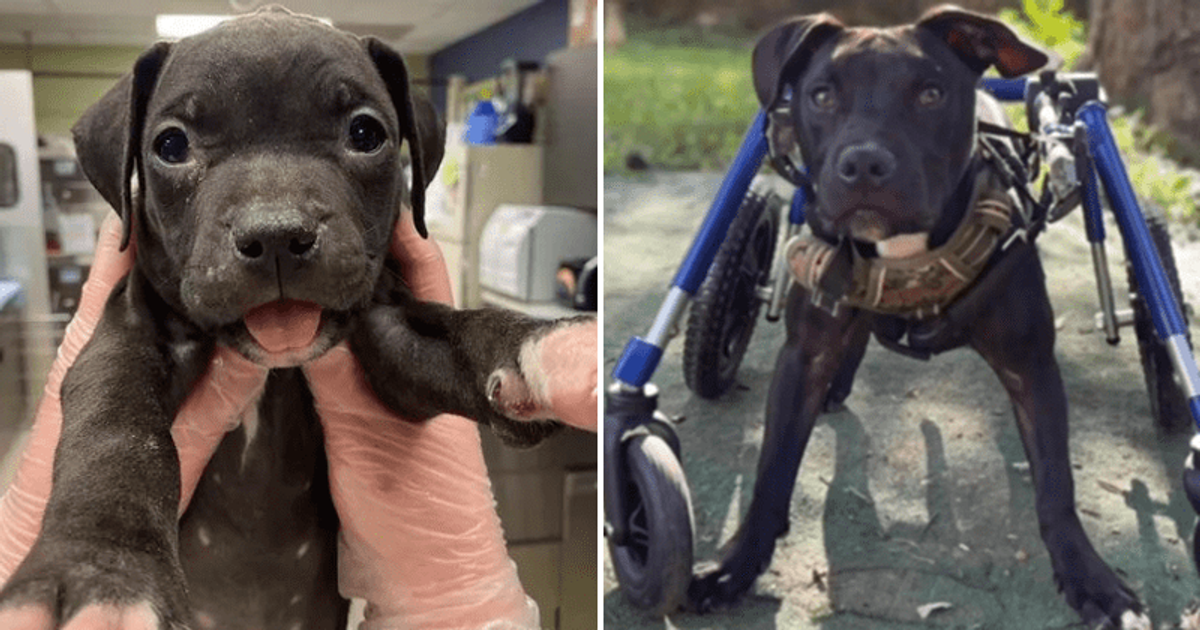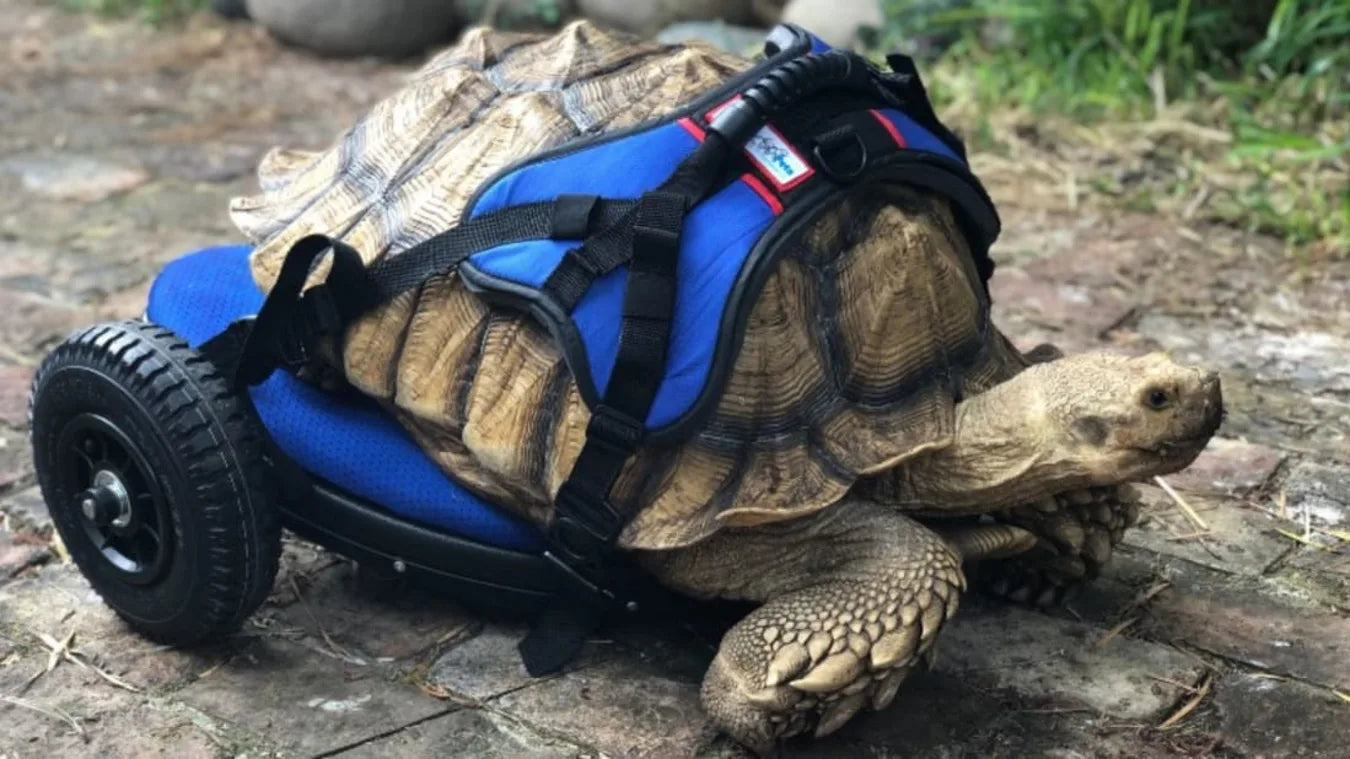Sit Down Dog Wheelchairs

Health & Mobility Issues Every Basset Hound Parent Should Know About
With their expressive eyes, long ears, and short stature the Basset Hound has a distinctive look with a lot of personality. Unfortunately, their unique build can also put this stocky at risk for a host of health problems and mobility struggles. Understanding these health risks can help you give your dog the healthiest life possible.
Basset Health Issues and Mobility Problems

As with any other breed, there are medical conditions that the Basset Hound is prone to. According to Dr. Corinne Wigfall, DVM, BVM, BVS, "Unfortunately Basset Hounds are prone to a myriad of painful joint and limb diseases. Hip dysplasia, elbow dysplasia, angular limb deformities, IVDD, panosteitis, and OCD are all common. The breed standard calls for short legs and a long back which exacerbate the conditions mentioned above. The height regulation of maximum 15 inches again promotes breeding for short legs which predisposes the breed to the aforementioned conditions."
Here are a few of the most common health problems in Basset Hounds:
Basset Hound Back Leg Issues and Crooked Feet

A Basset Hound is built differently than other dog breeds, with their long back and short legs, hind leg issues are incredibly common. Many Basset Hounds are bred to have legs and feet that turn outward, this gives their body the support it needs to maintain their balance and support their broad shoulders. This process can create their leg to become deformed and even twisted in appearance which leads to a lot of back leg issues..
Due to the Basset Hound’s strange body alignment, arthritis has become a growing problem among the breed. Hind leg weakness and dragging back legs are common symptoms of arthritis issues in Bassets. A Basset Hound with crooked feet will also place their paws differently when they walk, causing alignment issues and worsening the dog’s risk for developing arthritis as they get older.
Hip & Elbow Dysplasia in Basset Hounds
Both hip dysplasia and elbow dysplasia are common conditions in Bassets. Dysplasia occurs when there is an abnormal development in a dog’s joint. Pets with elbow and hip dysplasia can experience leg problems, limited mobility, stiffness, decreased range of motion, and joint pain. Both degenerative conditions are manageable and Basset Hounds with dysplasia can lead a normal life with proper treatment and care.
Dogs with hip dysplasia may wear a dog hip brace to relieve hip pain and make continued mobility possible. Bassets with severe joint dysplasia may also deal with mobility loss. In the most advanced cases a wheelchair greatly reduces the pressure placed on the joints. The wheelchair support makes it possible for dogs to walk again with ease,
Basset Back Problems

As a short breed with a long back the Basset Hound is at risk for any number of back problems. Herniated disc and spinal conditions, such as Intervertebral Disc Disease are common among Bassets. BH owners should be very cautious on how they lift their dog. Like other long-bodied breeds, a basset should only be lifted when both their front and back ends are properly and evenly supported. To protect your dog’s spine from injury, do not let them jump onto furniture or out of the car, as this may jar their back and cause a spinal disc to rupture.
A dog wheelchair can be used to help Bassets who become paralyzed from IVDD or need additional support to remain active. Most Basset Hounds will also need additional midbody support while in the wheelchair to keep their back level and supported,
Ear Infections in Basset Hounds
Dogs with long ears are prone to ear infections and this is especially true with Bassets. Due to the fact that their ears are covered almost all the time, the canal retains a lot of moisture which makes it the perfect environment for bacteria to form. The breed is also prone to allergies which can lead to further ear problems. If your Basset Hound is digging at their ear, whining, shaking their head often, or there is any visible change (such as discharge or redness) it’s time to get their ears checked.










